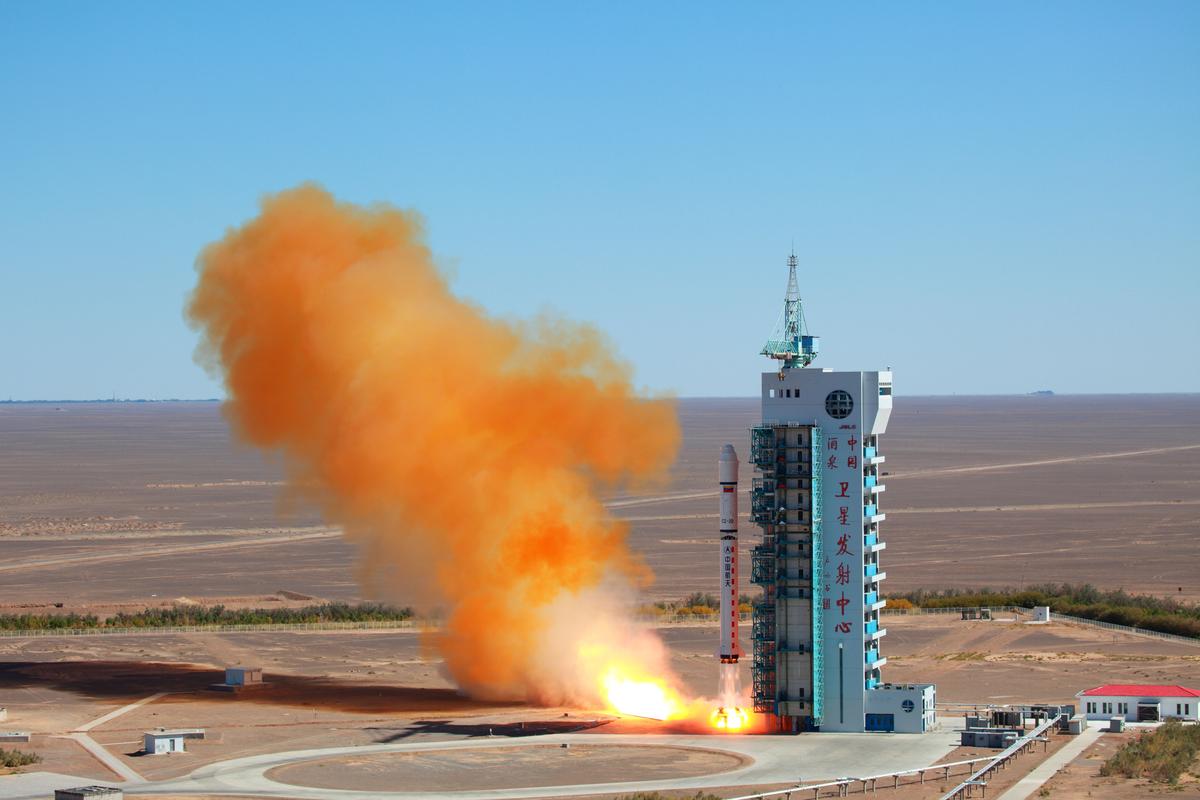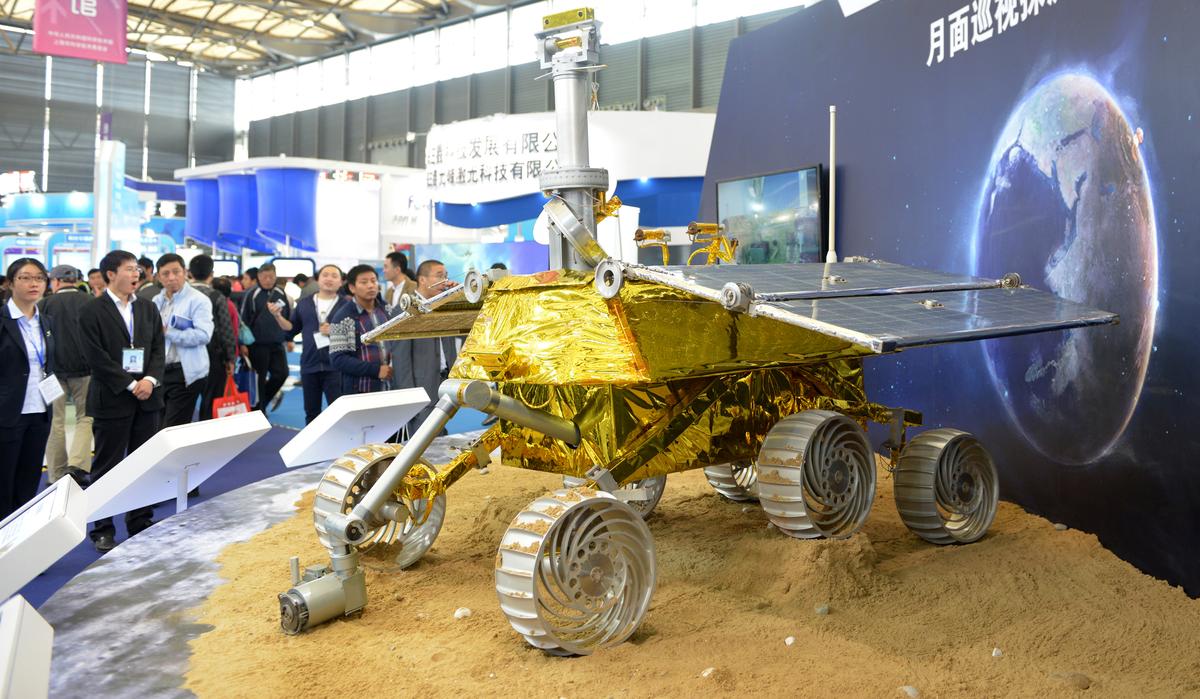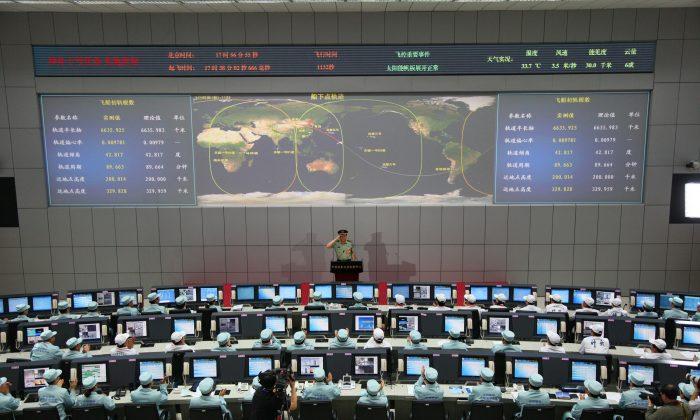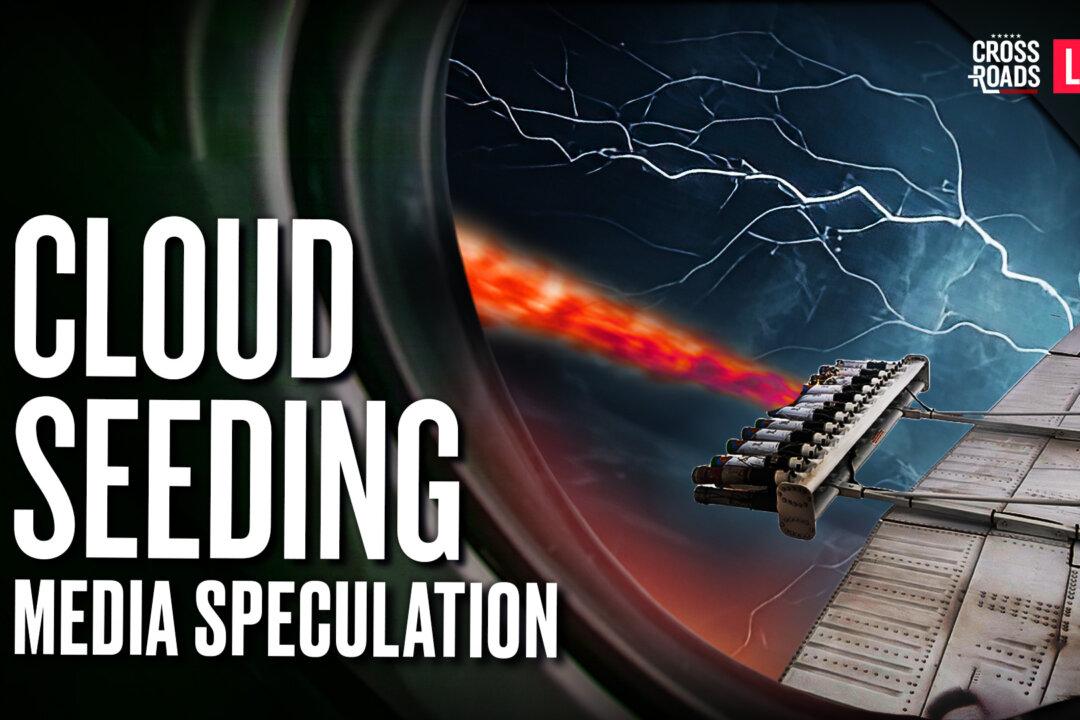Reliance on satellites is the Achilles’s heel of America’s military might, and China is making anti-satellite weapons a key focus in its military development. The United States is waking up to the threat: over the course of 11 days recently, Congress held five hearings where China’s foray into space warfare was raised as a major threat that will only grow.
“Chinese and Russian military leaders understand the unique information advantages afforded by space systems and are developing capabilities to disrupt U.S. use of space in a conflict,” said James Clapper, director of National Intelligence, during a Jan. 29 hearing.
Clapper added, “Threats to U.S. space services will increase during 2014 and beyond as potential adversaries pursue disruptive and destructive counterspace capabilities.”
The role of information in warfare that Clapper mentions has already been seen in real-world conflicts.
During the first Gulf War, after coalition forces destroyed Iraq’s air force and anti-aircraft facilities, their second priority was to destroy its command and communication facilities. This left Iraq’s military wandering the desert like lost children, not knowing where their enemies were, not knowing what to do, and not knowing the situation of the war. The majority of Iraq’s military surrendered to coalition forces.
A similar strategy was used by Russia during its invasion of Georgia. Just before the Russian military invaded Georgia in 2008, Georgia was hit by a series of Russian cyberattacks that shut down major media outlets and government websites, leaving Georgia without a working information channel as it was attacked. The cyberattacks were pinned on Russian intelligence, although the Russian government denies the allegations.
According to Ross Babbage, managing director of Strategy International, an Australian national security consulting organization, China is planning a similar strategy in the case of war against the United States. The first part of this strategy would be to “blind the U.S. surveillance and reconnaissance systems and damage command, control, and communications networks with cyber, missile, and space attacks,” Babbage said, as quoted in the book “The Kingdom and the Quarry: China, Australia, Fear and Greed.”
The threat of China’s counterspace weapons to the United States “ranks on par with China’s offensive cyber operations to the United States,” said Ashley Tellis, senior associate at the Carnegie Endowment for International Peace during a Jan. 28 congressional hearing.
“Chinese military planners are deeply focused on neutralizing U.S. space capabilities because of their belief that such neutralization is essential to whittle down dominance on which the U.S. military depends on for its success,” Tellis said.
Asymmetrical Warfare
Satellites are the Achilles’s heel of America’s military might, and U.S. adversaries are aware of the weakness. Systems dependent on satellites include missile warnings, communications, GPS, and reconnaissance.
“The United States and other powers are dependent on space assets for military operations and to ensure an advantage over potential adversaries,” said Mark Stokes, executive director of the Project 2049 Institute, during a Jan. 30 congressional hearing.
Stokes cited a former U.S. national intelligence authority, noting that development of anti-satellite weapons “are among Beijing’s highest military priorities.”
The key strength of Western military powers is the use of asymmetrical warfare—small groups of troops supported by the full capabilities of overall military including air support and intelligence. This form of warfare, however, is strongly reliant on command and control communications.
Despite China’s large military, many defense analysts doubt whether it could even defeat the militaries of smaller countries including Taiwan and Japan, which both use Western-style asymmetrical militaries.
China’s military strength revolves around numbers, and its plan is to force the U.S. military to meet the Chinese military on its terms. This requires using space warfare and cyberwarfare to destroy the systems that make the U.S. military superior to its own.
If China could damage U.S. military satellites and make them less reliable, “our force movements will be slower and less coordinated, our longer-range weapons less responsive and less accurate, our tactical operations in general less focused and more costly, and our global awareness more myopic and less timely,” said Robert Butterworth, director of the George C. Marshall Institute, during the Jan. 28 congressional hearing.
While the CCP likes to toot its horn over its growing military sophistication—its fifth generation fighter jet, its growing navy, and its development of nuclear weapons, it tries to keep a tight lid on its anti-satellite weapons.
The Chinese regime has even tried covering up tests. When China launched a Dong Ning-2 anti-satellite missile on May 12, the state-run Chinese Academy of Sciences tried calling it a scientific mission.

Space Warfare
The concern over China’s interest in anti-satellite weapons goes beyond military threats. The weapons are so damaging that China’s first demonstration of an anti-satellite weapon in 2007, which destroyed one of its own satellites in low orbit, is still discussed as a reckless act that left an estimated 2,500 pieces of dangerous debris barreling through orbit.
The incident was one of the key reasons why NASA is banned from cooperating with China, as it made the United States question China’s intentions in space.
Orbital debris travels at speeds up to 17,500 miles per hour. “Even tiny paint flecks can damage a spacecraft when traveling at these velocities,” states the NASA website. “In fact a number of space shuttle windows have been replaced because of damage caused by material that was analyzed and shown to be paint flecks.”
Even a handful of such destructive anti-satellite tests could have devastating effects on space missions. It could also paralyze commercial space satellites, affecting systems including GPS, television, and even many telephone services.
NASA needs to track orbital debris during its space missions. In June 2011, six crew members in the International Space Station had to take shelter in Soyuz lifeboats when a piece of debris missed the station by 820 feet.
“The debris field was troubling enough to our satellites and our space mission—but these early activities reveal that countries are working on the ability to destroy our satellites, on which so much of our daily lives, and our military and intelligence capabilities, depend,” said Congressman Dutch Ruppersberger (D-Md.) at a Feb. 4 hearing.
According to Michael Krepon, co-founder of the Stimson Center, space warfare is an old threat.
Krepon served as a staff member on the House Armed Services Committee during the Cold War. On Jan. 28 he testified before the same committee about China’s ambitions for space warfare.
“I think there are several reasons why we avoided warfare in space back then,” he said, referring to the Cold War. “One was that we couldn’t firewall it away from warfare in other domains.”
Krepon said the United States and Moscow were clear that war in space meant war on Earth, and, “The prospect of uncontrolled escalation was in front of us, and in front of Moscow. The capabilities in space were so vulnerable that if somebody wanted to start shooting up there, we could be extremely harmed.”
The same situation exists today, he said, noting that there is little the United States can do to guard its satellites, and China needs to be made aware of repercussions if it were to attack a U.S. satellite.
The discussion moving forward, he said, is “how do we manage vulnerability as best we can? That’s the question.”



![[LIVE Q&A 04/25 at 10:30AM ET] Why Is Australia Going After Elon Musk?](/_next/image?url=https%3A%2F%2Fimg.theepochtimes.com%2Fassets%2Fuploads%2F2024%2F04%2F24%2Fid5636785-CR-TN_REC_0425-1080x720.jpg&w=1200&q=75)



Friends Read Free